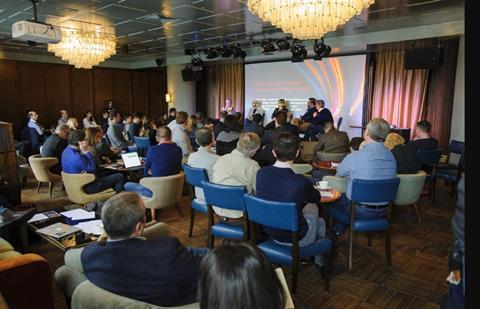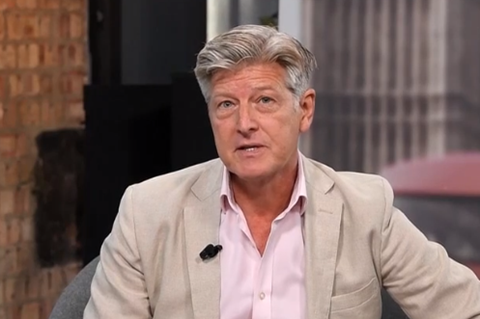Designed to nurture collaborations that can facilitate the next phase of digital transformation, the 2020 IBC Accelerator Programme is delivering progress on everything from AI-driven live content moderation to 5G-based remote production.
From IP-based production to AI-powered content identification and archiving, the last few years have witnessed a remarkable increase in potentially game-changing technologies for broadcast production. The complexity of many of these developments is such, however, that it’s only through effective collaboration that they are likely to achieve their greatest potential – and that’s precisely where the IBC Media Innovation Accelerator Programme has come into its own.
Following the Catalyst Projects initiative that saw IBC collaborate with the TM Forum, the Accelerator programme emphasises the role to be played by an ‘open R&D approach’ in achieving sector-wide digital transformation. Led by digital XR producer and creative technologist Muki Kulhan and communications-specialising independent marketing consultant Mark Smith, the Accelerator Programme calls for multi-company teams to join forces and develop innovation solutions to use cases. With broadcasters, studios, platforms and content owners leading individual schemes as ‘Champions’, the projects also involve expert vendors and solutions during intensive five month-long Proof of Concept development phases.

Having received an initial “17-20 submissions” and participated in a ‘Kickstarter’ day to introduce the proposed projects to possible collaborators, Kulhan and Smith ultimately whittled it down to “a group of eight projects that were already building momentum,” notes Smith.
As befits an industry in the midst of a profound period of transition, the projects cover a wide range of rising technologies and techniques, including 5G for remote production, object-oriented TV production, and AI-driven live content moderation (the full list, with complete details of Champions and participating vendors, can be found here).
Invited to discuss the progress of several projects, Kulhan and Smith gravitate towards a few that would have been especially useful during the production challenges heralded by Covid-19.
’5G Remote Production’ – which saw Champions including the BBC and Al Jazeera working with a host of vendor partners – is a case in point. With the cancellation of the IBC Show meaning that the originally intended presentation there could not take place, the team instead organised “an ambitious demonstration of 5G from the RAI when the show would have taken place. A great deal of state-of-the-art technology was involved in the trial, including LiveU’s LU800 bonded uplink product, Sony cameras and the NewTek TriCaster 2 Elite live production system.”
Read more IBC Accelerator: 5G Remote Production
With some elements of 5G, such as network slicing and ultra low-latency delivery, still to be formalised, this project zeroed-in on “the art of the possible as to where we are with 5G right now. In terms of deepening understanding about various aspects connected to 5G for remote production, it’s been an enormously useful project.”

Using AI to moderate live content
Identifying methods to manage both current and predicted future challenges has also been at the core of another project, ‘Live Content Moderation’. With Champions including Al Jazeera and Reuters, this scheme acknowledges the phenomenal expansion of content sources in news, and proposes the leveraging of AI-driven metadata to perform automated content moderation for live production.
Violence was selected as the main theme for this Accelerator, in recognition of the fact that “there is content to be moderated both from professional journalists out in the field, and from social media feeds, and that kind of material can take a real toll on human moderation.” With an AI-driven approach there is the opportunity to “pick up on things like blood on the ground or shots being fired, and then apply red flags that allow for this content to be quickly removed.”
The project has covered “a lot of ground this year,” says Smith, who envisages its findings being applied in the future to other forms of problematic content, such as nudity and hate speech.

Admitting that she has “become very attached to all of the projects”, Kulhan pinpoints the ‘Virtual & Interactive Live Music Talent Show’ accelerator for attention, not least because it has brought in companies – such as Warner Music and MTV International – who might not otherwise have IBC on their radars. It’s also a notably ambitious scheme given that it aspires to create “a completely new kind of live music talent platform” that combines real-time, multi-user digital and virtual broadcasts, UGC interactivity and an “ethical AI backend” to ensure and promote ethical moderation, ID/data verification, diversity and inclusion, and cyber-security.
Underlining the “great collaborations” at the heart of this project, Kulhan reveals that it will soon result in the publication of “a white paper manifesto that outlines the thinking behind this Accelerator and explains why the industry needs to ensure that [an emphasis is placed on] ethical platform-building.”
‘True community cooperation’
Associated Press VP News Sandy Macintyre is well-placed to comment on the “true community cooperation” prompted by the Accelerator programme as he was both involved in Live Content Moderation as a Champion, and led the ‘AI Automated Shotlisting’ project. The latter – which focuses on the use of AI to fully automate the process of producing raw and edited content shotlists for news agencies and broadcasters – has yielded a joint proposal for a solution that could be applied by AP as early as Q1/2021.
Macintyre says that “the IBC involvement means we can cast the net wider into a larger vendor community than any one R&D department could hope to identify and harness. The AI shotlisting project was a case in point. One of the vendors, [ML/AI technology developer] Vidrovr, had worked with AP on trying to figure out a solution in the months leading up to the Accelerator launch, but the other participants were not names we had previously thought of as potential collaborators. Once housed under one Accelerator incubator bubble their ability to each bring a specific area of AI expertise to the table meant that the sum of the parts created a near-instant solution and allowed us to fine-tune and build capability and speed. [Different organisations] working as a group gave the whole project real energy.”

ITV Principal Architect, Enterprise Architecture Tim Davis – who led the ‘TV Delivered As Objects’ project exploring IP-based delivery and personalisation – notes that the Accelerator’s learnings “have helped us to shape the future roadmap for how we may distribute our content to connected, smart devices.” Like Macintyre, he highlights the programme’s conduciveness to having “a diverse and expert team working together, all collaborating on one problem space. That type of teamwork – and, in particular, the non-competitive approach – were the real value from the project. The ability of any one organisation to innovate is amplified when it works [with others].”
Variations on this theme have been voiced to Accelerator leads Smith and Kulhan throughout 2020, with the latter noting that “lots of people have now seen the success and value of the Accelerators, and want to come and play too!” Immersive audio is just one area of technology that she would like to see covered in the next set of Accelerators, for which potential participants will soon be encouraged to express their interest. After all, she concludes, “innovation never stops, and right now it is moving faster than ever before.”
- For more information on the IBC Accelerator Programme, visit IBC Accelerators
























No comments yet